Country reports
These are sad results for journalism in Macedonia: only 15 percent of the population believe in a real independent press in Macedonia. In contrast, half of the respondents express that journalists in Macedonia can’t report freely. Moreover, only 14 percent of respondents have high confidence in the work of journalists; contrarily 38 percent distrust the journalists tremendously.
A little more than a third (38 percent) of the citizens feels well informed about politics by the media. 16 percent indicate that they are not interested in politics. The lack of interest is even higher among young people. Almost every fourth citizen between 18 and 29 years old doesn’t want to deal with politics. Discrepancies are also among the different types of settlement. In comparison, people from rural areas feel less informed than people from urban areas. Additionally, every fifth outside of the cities has no interest in politics.
TV Prevails – Social Media Follow
The most important source of information are the TV channels. More than 70 percent of Macedonians get their political news from TV. Social networks (47 percent), websites of public institutions and radio (each 12 percent) follow. Print media are only used as a source of information by 9 percent. Regarding the age there is a similar picture as in other countries. The younger generation watches less TV and uses more internet and social media.
Concerning trust, TV is also ahead. Every second Macedonian trusts TV news. This is followed by social media (18 percent), websites of public institutions (7 percent) and radio (6 percent). However, 28 percent of interviewees respond that they do not trust any source of information.
Although TV enjoys high trust, almost 40 percent of the population believe that false facts are distributed through TV. This opinion is even higher for social networks with 44 percent.
The youth at the age of 18 to 29 years not only uses more online media, but also trusts them by far more than TV. The most trusted source are social networks, but compared to other citizens they also trust websites of public institutions and non-governmental organisations more, which were also part of the survey. In comparison, TV enjoys very high confidence among people over 65 years.
Self-Regulation of Media Is Unknown Term
More than 70 percent do not know anything about self-regulation of media. However, 15 percent of respondents state that they know the procedure. With regard to hate and violence in the media, the majority (almost every second) does not know to which organisation or institution to complain to. Only 9 percent would appeal to the Association of Journalists or Agency for Audio and Audiovisual Media Services and only 3 percent have trust in the Public Prosecutor concerning this matter.
More Trust in EU and NATO
In the light of current political developments concerning the name dispute and the subsequent continuation of EU accession negotiations and a NATO membership, the trust in both institutions is relatively high: Almost 45 percent of Macedonians have very high or high confidence in the European Union – same goes for NATO with 41 percent. Concerning trust in other states, Germany is ahead of the USA and Russia.
The institute “Ipsos Macedonia” conducted the opinion poll. The sample of 1,033 interviewees is nationally representative. The results were presented at a public discussion on “How can citizens’ trust in media and politics be regained?” in Skopje on 8th November 2018.



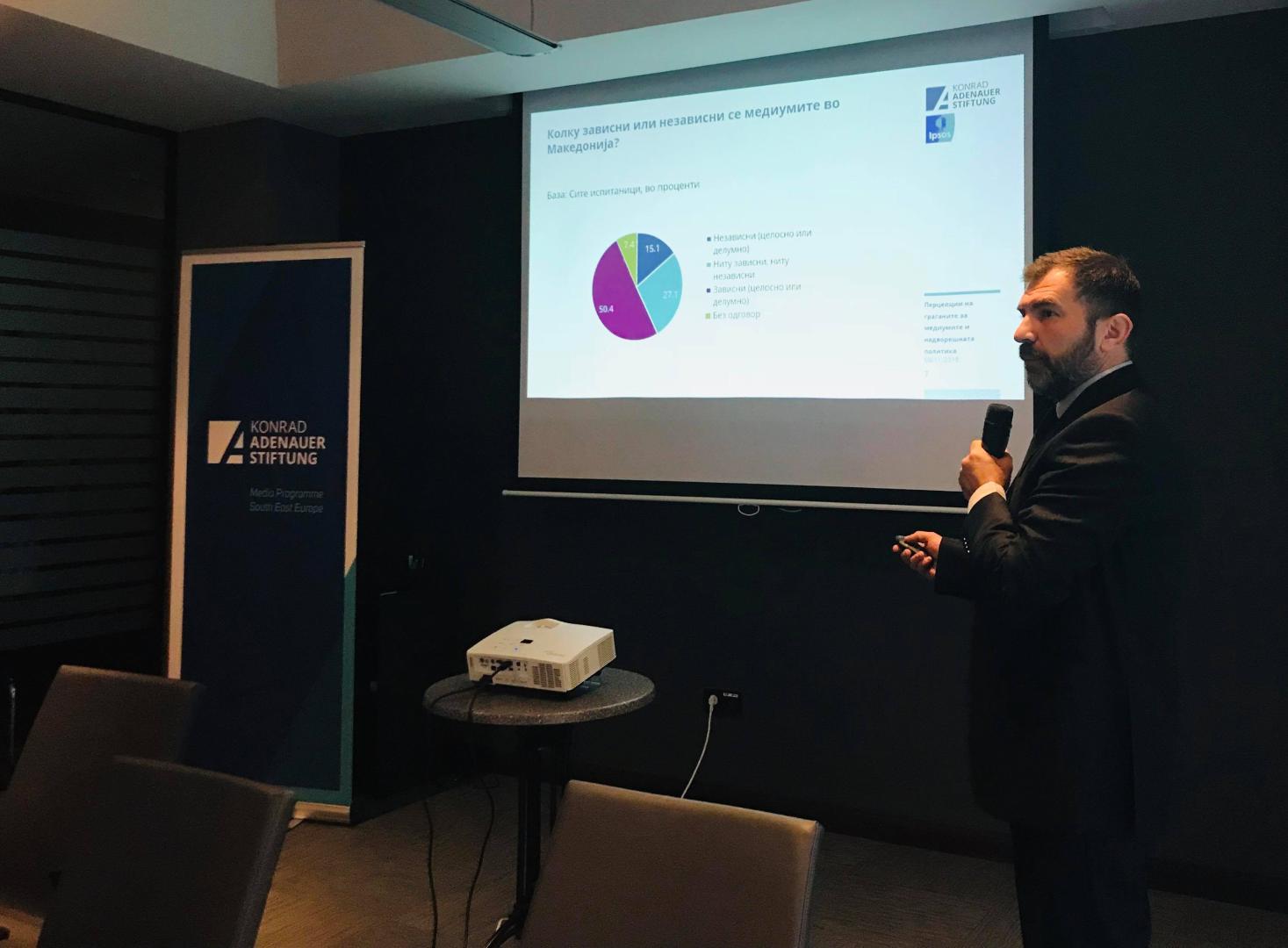
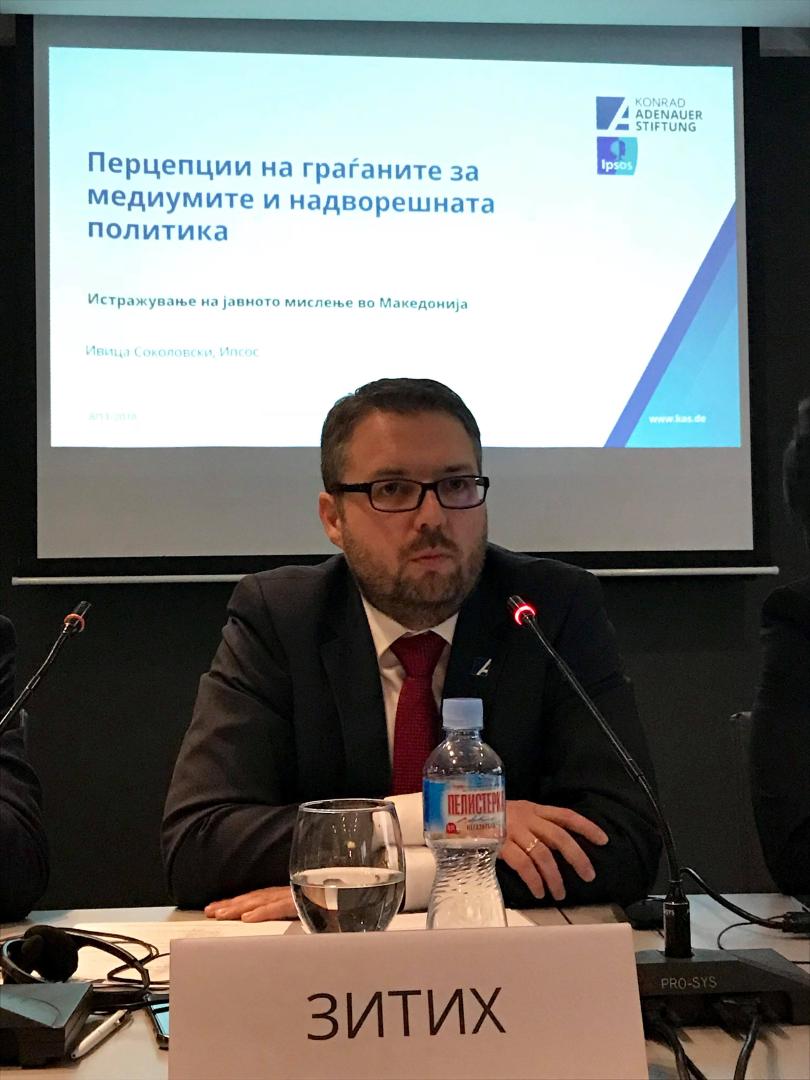
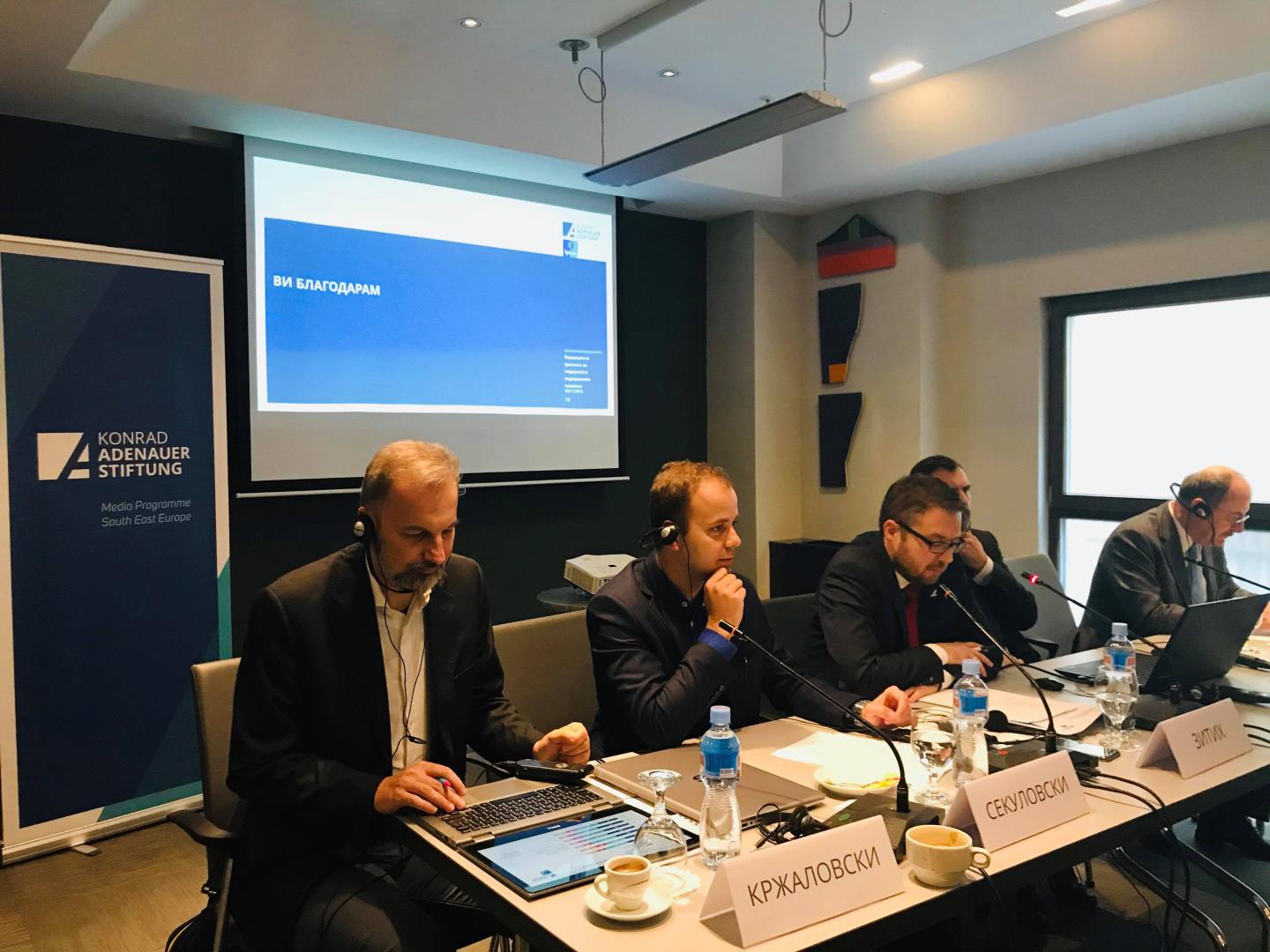
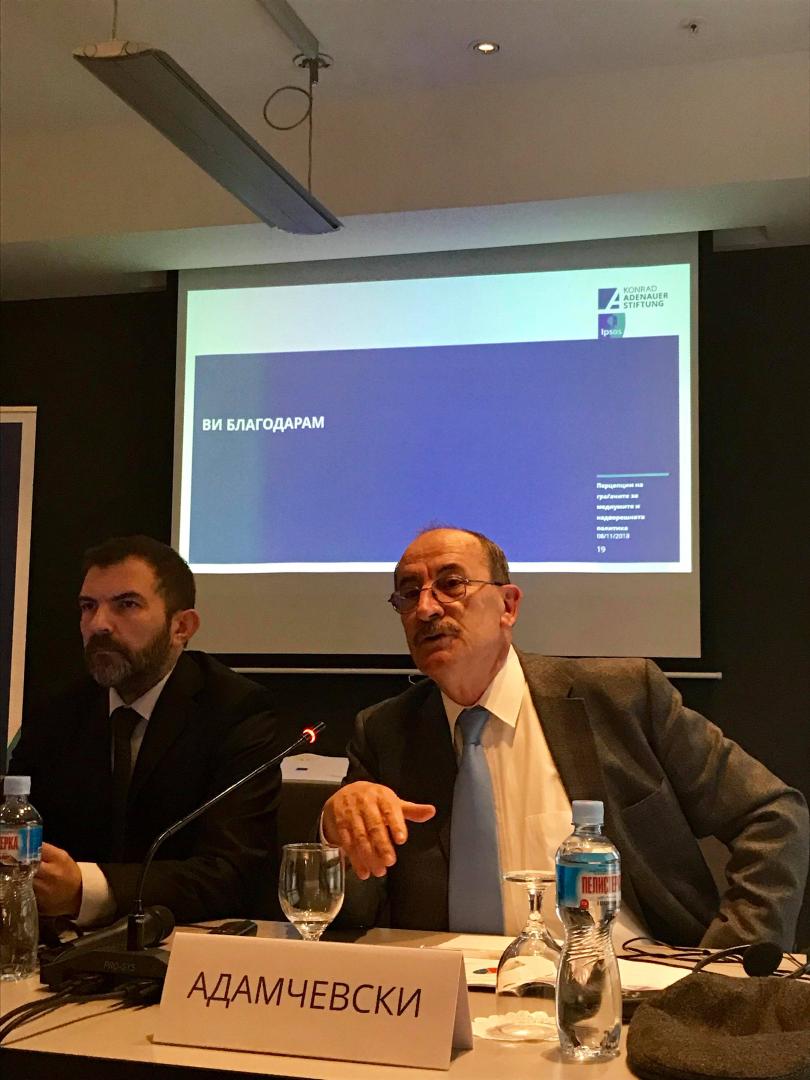
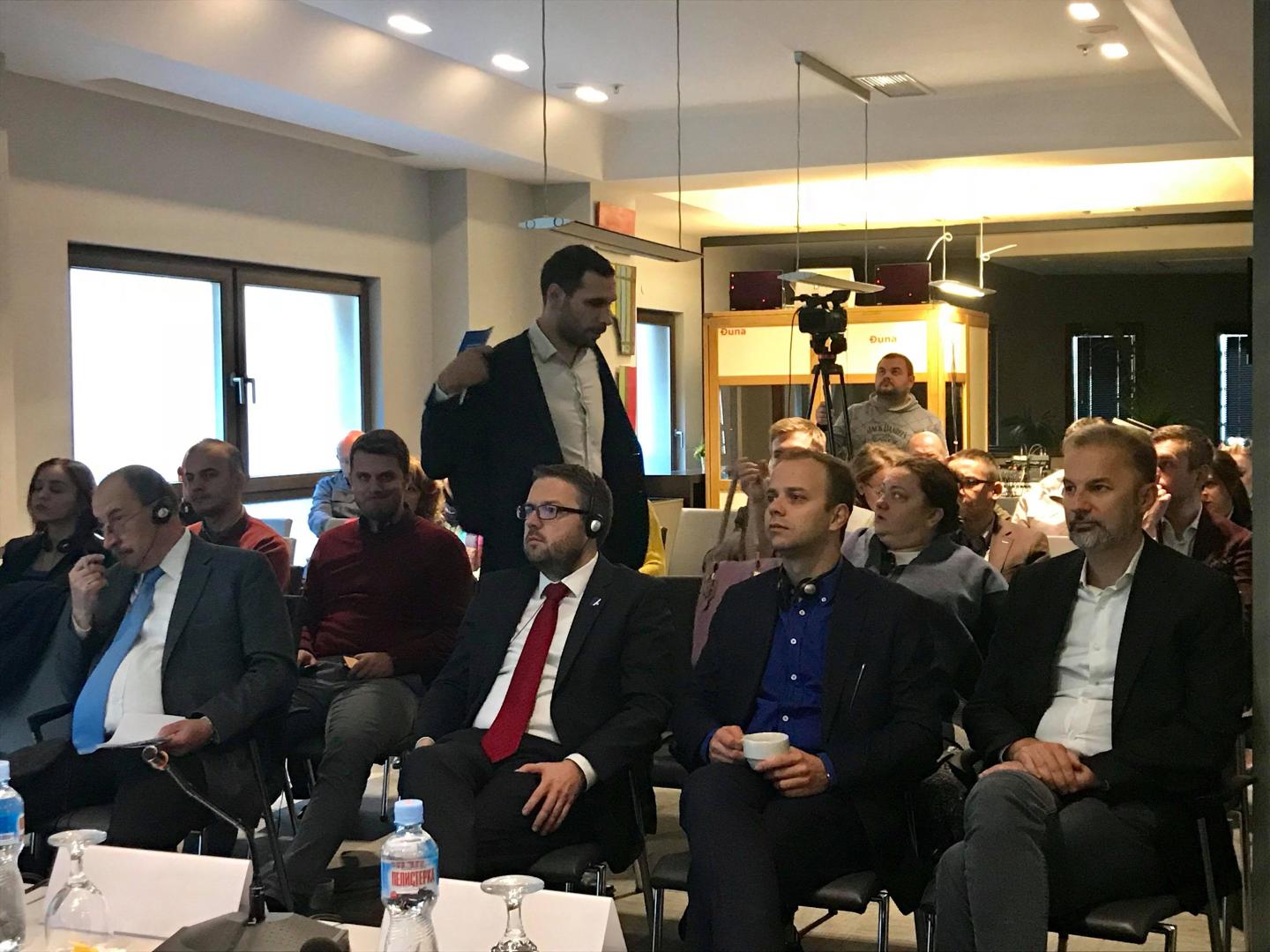
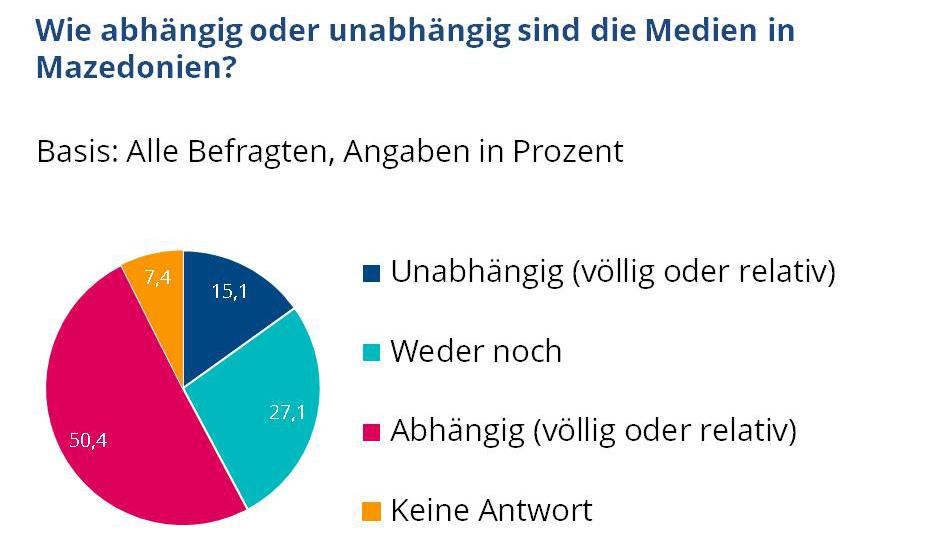
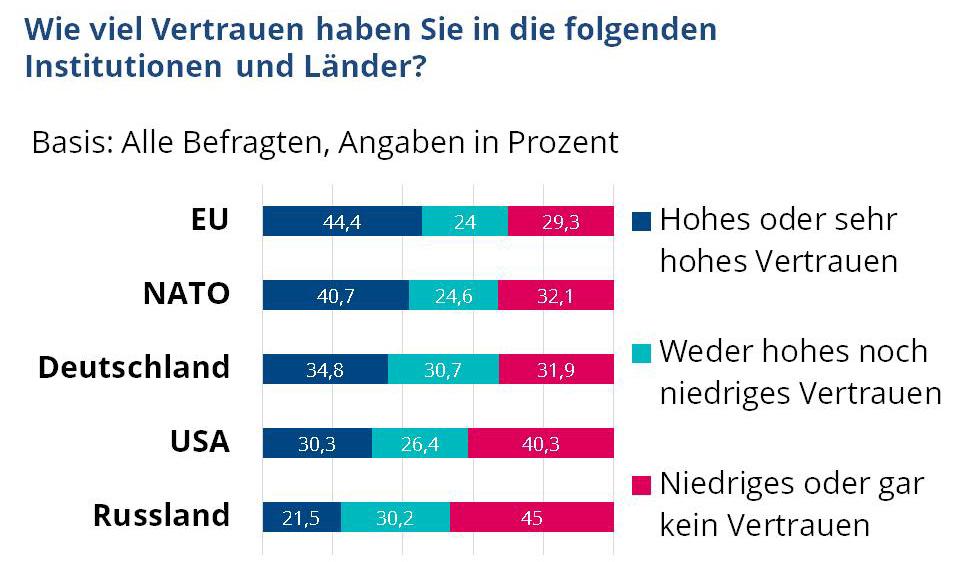
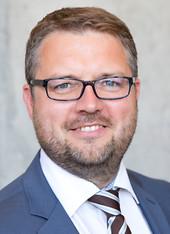
You need to sign in in order to comment.